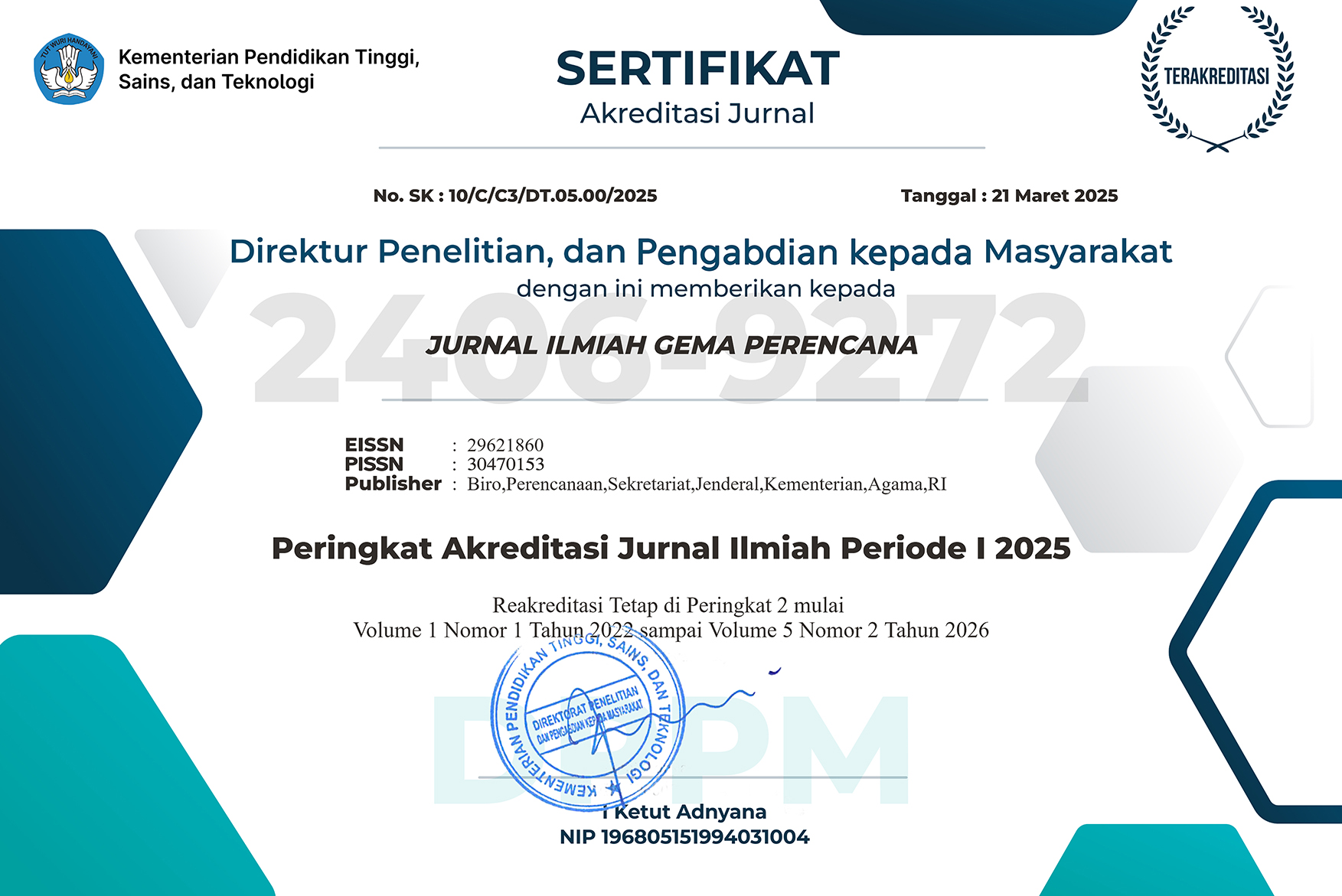The Role of the "Budi Luhur" Sharia Civil Servant Producer Cooperative (KPS-PN) of the Ministry of Religious Affairs Office of South Tapanuli Regency in Economic Development
DOI:
https://doi.org/10.61860/jigp.v4i1.215Abstract
This policy paper examines the strategic role of the Budi Luhur Sharia Producer Cooperative for Civil Servants within the Tapanuli Selatan Regency Ministry of Religious Affairs Office in local economic development. The methodology employed is qualitative, with a descriptive analysis approach, gathering and interpreting information from various relevant literature, internal cooperative documents, and observing operational practices. The study's findings indicate that this cooperative effectively empowers its members through sharia-compliant financing, diversification of productive enterprises (e.g., in the agricultural and services sectors), and provision of market access. The cooperative's presence not only enhances the individual economic well-being of its members through increased income and access to basic necessities but also significantly contributes to strengthening the local community's economy in Tapanuli Selatan by promoting sharia-based economic activities. Furthermore, this cooperative serves as a social safety net and a pillar of solidarity among civil servants. For future role optimization, it is recommended that the Budi Luhur Sharia Producer Cooperative develop innovative sharia products and services, expand strategic partnerships with external parties, and adopt digital technology for management and marketing efficiency, thereby continuously serving as a driving force for sustainable and equitable economic development. Challenges faced include limited capital and adapting to market dynamics. However, with appropriate strategies and support from various stakeholders, the Budi Luhur Sharia Producer Cooperative for Civil Servants has significant potential to continue playing an active role in advancing the regional economy.
Downloads
References
Antonio, M. S. (2001). Bank Syariah: Dari Teori ke Praktik. gema insani.
Ascarya. (2012). Akad & Produk Bank Syariah. Raja Grafindo Persada.
BNI Syariah,. (2020). Laporan Tahunan BNI Syariah. https://ir.bankbsi.co.id/misc/AR/AR2020-BNIS-ID.pdf
Chapra, M. U. (2008). The Future of Economics: An Islamic Perspective. Kube Publishing Ltd.
Departemen Koperasi dan UKM,. (2018). Pedoman Pengembangan Koperasi.
Drucker, P. F. (1999). Management Challenges for the 21st Century (Rev. ed). Taylor and Francis.
El-Gamal, M. A. (2006). Islamic Finance: Law, Economics, and Practice. Cambridge University Press.
Karim, A. A. (2003). Ekonomi Mikro Islami (Edisi Keempat). PT Raja Grafindo Persada.
Kementerian Koperasi dan UMKM,. (2022). Kementerian Koperasi dan UMKM.
Kotler, P., & Keller, K. L. (2016). Marketing Management (15. ed). Pearson.
Mujiyanti, S. A. (2023). Koperasi Indonesia dan Permasalahannya. Jurnal Informatika Ekonomi Bisnis, 1026–1029. https://doi.org/10.37034/infeb.v5i3.653
Porter, M. E. (1985). Competitive Advantage: Creating and Sustaining Superior Performance (2. Auflage). Free Press.
Sen, A. K. (1999). Development as Freedom (1. ed., 6th print). Alfred A. Knopf.
Tambunan, T. (2012). Usaha Mikro Kecil dan Menengah di Indonesia: Isu-Isu Penting (Cet. 1). LP3ES.
Todaro, M. P., & Smith, S. C. (2012). Economic Development (Thirteenth edition). Pearson.
United Nation. (2015). Transforming Our World: The 2030 Agenda for Sustainable Development. https://sdgs.un.org/2030agenda
Downloads
Published
How to Cite
Issue
Section
License
Copyright (c) 2025 Sofyan Adli Hasibuan

This work is licensed under a Creative Commons Attribution 4.0 International License.








